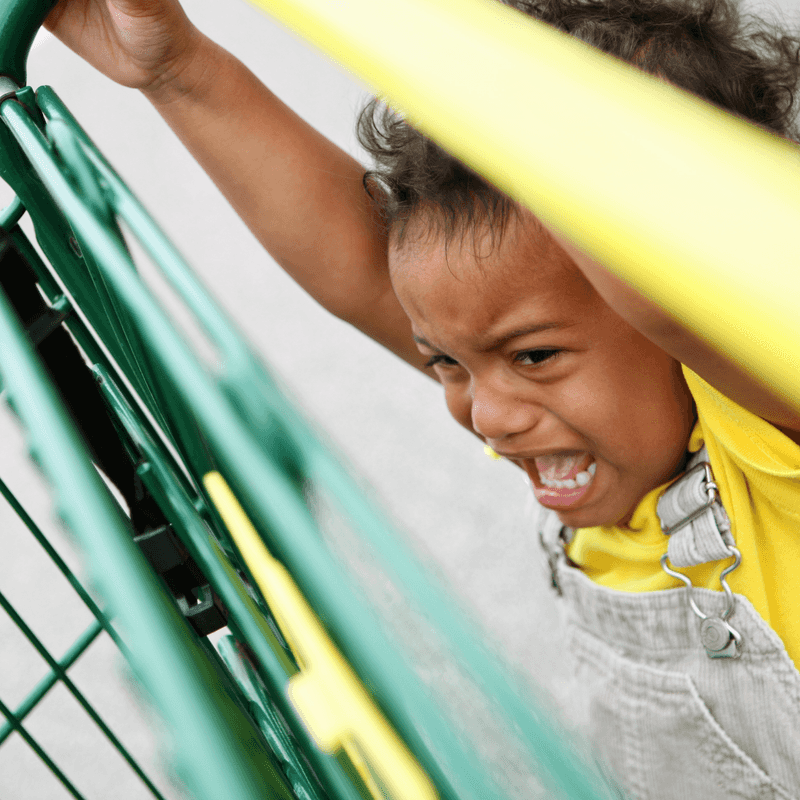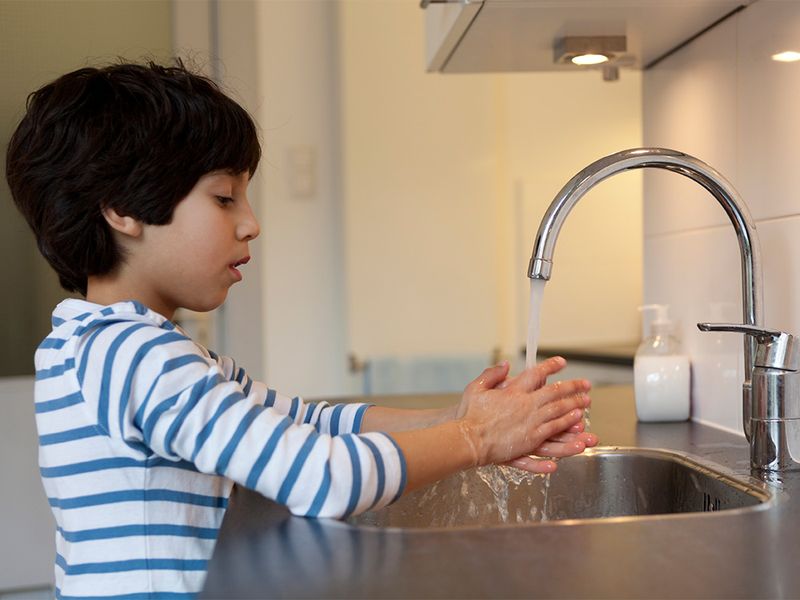Here’s Why Gentle Parenting Might Be Harder Than It Seems

Gentle parenting sounds wonderful in theory—responding to children with empathy, setting kind but firm boundaries, and fostering emotional intelligence. But behind those peaceful Instagram posts and heartwarming stories lies a parenting approach that can be incredibly demanding. Many parents find themselves drawn to gentle parenting principles only to discover it’s much more complex in real-life application. Here’s why this well-intentioned approach might be tougher than it first appears.
1. Emotional Regulation Becomes Your Full-Time Job

Ever tried staying perfectly calm while your toddler throws spaghetti at the wall for the third time this week? Gentle parenting demands that parents manage their own emotions first, even when they’re running on four hours of sleep or dealing with work stress.
The mental gymnastics required to pause, breathe, and respond thoughtfully instead of reacting from frustration can feel impossible some days. Your own childhood conditioning often fights against you too—if you were raised with yelling or punishment, your brain’s automatic response will lean that way.
Many parents report feeling like failures when they inevitably lose their cool, creating a cycle of guilt that gentle parenting ironically wasn’t supposed to cause. The constant emotional monitoring becomes exhausting, especially during prolonged challenging phases.
2. The Time-Energy Equation Never Balances

“Just explain why they can’t have candy before dinner” sounds simple until you’ve done it seventeen times in one afternoon. Traditional discipline methods like “because I said so” might not be ideal, but they certainly take less time than the thoughtful conversations gentle parenting promotes.
Parents often find themselves caught in lengthy negotiations with their children about everything from brushing teeth to leaving the playground. These interactions require significant mental bandwidth that many simply don’t have after working all day, managing a household, and handling life’s other demands.
The reality? Sometimes there just aren’t enough hours or enough energy to parent this way consistently. Many gentle parents admit to occasionally reverting to quicker methods when they’re simply too drained to take the longer, more mindful approach.
3. Walking the Boundary Tightrope

“Am I being too permissive?” This question haunts many gentle parents who struggle with setting boundaries that are both kind and firm. The dance between respecting a child’s autonomy while still maintaining necessary limits can feel like navigating a maze blindfolded.
Parents often worry their children won’t develop proper discipline if they don’t experience consequences in the traditional sense. When a child tests limits repeatedly, doubt creeps in about whether the gentle approach is actually working. Family gatherings become especially tricky when relatives witness your child’s behavior and silently (or not so silently) judge your methods.
Finding that sweet spot—where boundaries are clear but delivered with compassion—requires constant recalibration based on the child’s age, temperament, and situation. It’s a delicate balance that even experienced gentle parents struggle to maintain consistently.
4. Swimming Against the Family Current

“In my day, we got spanked and turned out fine!” declares Grandpa at the family dinner while your toddler refuses to eat their vegetables. Nothing tests a parent’s commitment to gentle methods quite like the raised eyebrows and unsolicited advice from extended family.
Many grandparents and older relatives view gentle parenting as permissive or soft, creating tension during family gatherings. Parents find themselves not only managing their children’s behavior but also defending their parenting philosophy to skeptical family members who believe in more traditional approaches.
This intergenerational disconnect often leaves gentle parents feeling isolated or unsupported by the very people they’d normally turn to for help. Some even report limiting family time to avoid the constant criticism or confusion that occurs when different parenting styles clash across generations.
5. The Long Game Requires Serious Patience

Gentle parenting promises beautiful results—emotionally intelligent, secure children with strong problem-solving skills. What it doesn’t advertise is how long you might wait to see these benefits bloom. While punishment might immediately stop a behavior, gentle approaches focus on gradually developing internal motivation and understanding.
Parents watching their neighbor’s kids snap to attention while their own children seem to need endless discussions can feel disheartened. The doubt creeps in during those moments when your four-year-old is having their fifteenth meltdown of the week despite all your careful emotion coaching.
Research supports the long-term benefits of authoritative, responsive parenting, but the day-to-day evidence can be hard to spot. Many gentle parents admit to periods of questioning whether their approach is working at all, especially during challenging developmental stages or when comparing their children to peers.
6. Public Parenting Becomes Performance Art

The grocery store meltdown—that universal parenting experience—takes on new dimensions with gentle parenting. As your child screams about the denied candy while strangers stare, the pressure to either abandon your principles or endure public judgment becomes intense.
Many parents report feeling like they’re on stage when handling difficult behaviors in public. The perceived expectation to remain perfectly calm while effectively addressing the situation can create anxiety that actually makes gentle responses harder. Some admit to being stricter in public than at home simply due to social pressure.
The reality is that gentle parenting often looks messy to outsiders who expect quick compliance from children. Parents find themselves caught between staying true to their values and avoiding the discomfort of public scrutiny—a dilemma that traditional parenting methods with immediate results don’t create to the same degree.
7. Your Own Childhood Ghosts Come Knocking

“You sound just like your mother!” The words escape your lips during a tense moment, and suddenly you’re confronting your own parenting inheritance. Gentle parenting demands extraordinary self-awareness as parents untangle their automatic responses from their intentional ones.
Many discover that choosing gentle responses means first processing their own childhood experiences—sometimes painful ones. The triggers are everywhere: when your child ignores you repeatedly, when they talk back, or when they make the same mistake for the hundredth time. Each scenario activates old programming that can be surprisingly difficult to override.
This internal work becomes an unexpected part of the parenting journey. Parents often report feeling like they’re simultaneously raising their children and re-parenting themselves, healing old wounds while trying not to create new ones. This dual process can be emotionally draining yet necessary for consistent gentle parenting.
8. Consistency Crumbles Under Real-Life Pressure

Monday morning: You’re running late, the dog just threw up on the carpet, your work inbox is exploding with emergencies, and your child refuses to put on shoes. Even the most dedicated gentle parents admit that consistency becomes nearly impossible during life’s chaotic moments.
The reality is that gentle parenting requires significant cognitive and emotional resources that simply aren’t always available. Parents report feeling torn between their ideals and their practical limitations, especially during high-stress periods like illness, work deadlines, or family crises.
This inconsistency creates its own problems as children become confused by shifting responses to similar behaviors. Many gentle parents describe the guilt cycle that develops: stress leads to less-than-gentle responses, which creates guilt, which increases stress, making gentle responses even harder. Breaking this cycle becomes yet another challenge in an already demanding approach.
9. Fighting the “Pushover Parent” Stereotype

“So you just let them do whatever they want?” The mischaracterization of gentle parenting as permissive parenting follows practitioners everywhere. Despite setting clear boundaries, gentle parents often battle the perception that they’re raising undisciplined children.
This stereotype creates social pressure from other parents, teachers, and even strangers who misinterpret responsive parenting as a lack of authority. Children themselves sometimes contribute to the confusion, testing whether gentle parenting means no rules at all—a phase that can be particularly challenging in public settings.
Many gentle parents find themselves overexplaining their approach or feeling defensive about their children’s normal developmental behaviors. The mental load of navigating these misperceptions adds yet another layer of complexity to an already demanding parenting style, making parents question whether the approach is worth the constant justification it seems to require.
10. The Emotional Labor Nobody Talks About

Gentle parenting asks parents to become emotional sponges, absorbing and processing their children’s big feelings while managing their own. This invisible emotional labor rarely makes it into the sunny social media posts about connection-based parenting.
The constant empathizing, especially during difficult phases, can leave parents emotionally depleted. Many describe the phenomenon of “compassion fatigue”—similar to what healthcare workers experience—where their capacity for empathy becomes temporarily exhausted after prolonged exposure to others’ distress.
Parents of children with special needs or intense emotional profiles find this aspect particularly challenging. The vulnerability required to stay emotionally available through years of parenting challenges can be both beautiful and brutal. While gentle parenting literature emphasizes self-care, the reality is that many parents struggle to find time or resources for meaningful emotional replenishment.

Comments
Loading…